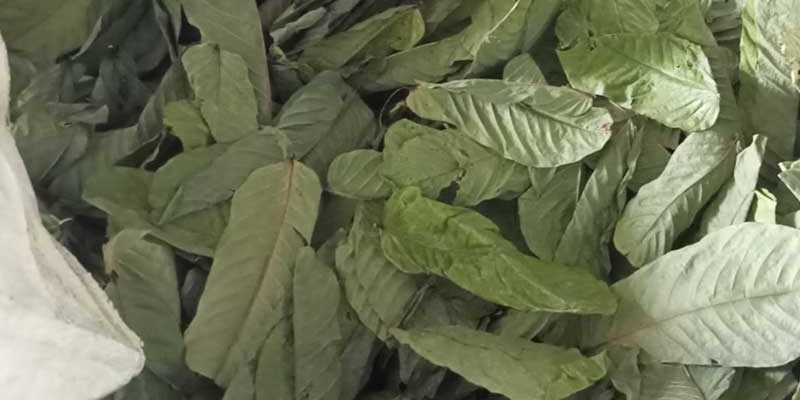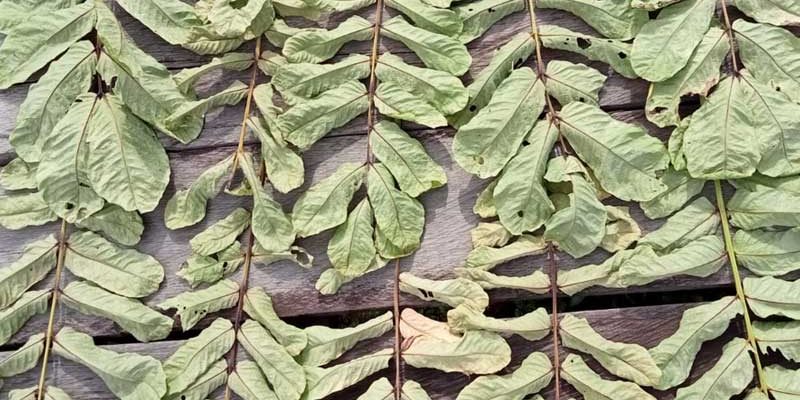




Details
READING TIME
3 min
CATEGORY
Information
TOPIC
Education
Unveiling the Benefits of Senna Alata Leaves
Senna Alata Leaves (Cassia Alata) A Powerful Medicinal Plant for Skin and Digestive Health
Senna Alata leaves (scientifically known as Cassia Alata) are widely recognized in Indonesia and across the world for their remarkable medicinal properties. Known for their therapeutic benefits, especially in treating skin conditions and digestive issues, these leaves have been a part of traditional medicine for centuries. In this article, we will explore the origin, classification, chemical composition, and the scientifically backed health benefits of Senna Alata leaves.
What Are Senna Alata Leaves?
Senna Alata, commonly known as Candle Bush or Ringworm Bush (due to its potent antifungal properties), is a tropical plant that thrives in warm, humid climates. This hardy plant is native to Southeast Asia but can also be found in regions of Africa and South America. It grows easily in wild and open areas, such as vacant land or plantations, and has become a staple in many traditional medicine practices due to its adaptability and beneficial properties.
Scientific Classification of Senna Alata
The scientific classification of Senna Alata is as follows:
- Kingdom: Plantae
- Division: Magnoliophyta
- Class: Magnoliopsida
- Order: Fabales
- Family: Fabaceae
- Genus: Senna
- Species: Senna alata
Chemical Composition of Senna Alata Leaves
Senna Alata leaves are rich in various bioactive compounds that contribute to their medicinal properties. Key compounds include:
- Anthraquinones: These compounds are well-known for their antifungal properties and are the main active ingredient used in the treatment of skin infections such as ringworm, tinea, and athlete’s foot.
- Flavonoids: These powerful antioxidants help protect the body from oxidative stress and free radical damage, supporting overall health and well-being.
- Tannins: With their antimicrobial and anti-inflammatory properties, tannins in Senna Alata leaves help soothe irritated skin and combat bacterial infections.
These compounds make Senna Alata a versatile plant widely utilized in both traditional and modern medicine, often found in topical ointments, extracts, and skin treatments.
Health Benefits of Senna Alata Leaves
Treating Skin Infections
Senna Alata extract is particularly effective in treating fungal skin infections. The anthraquinones found in the leaves inhibit the growth of fungi that cause conditions like ringworm, athlete’s foot, and tinea. The topical application of Senna Alata leaves can help clear up these infections and promote faster healing.
Relieving Constipation
Senna Alata leaves also act as a natural laxative, providing relief for individuals suffering from constipation. The compounds in the leaves stimulate bowel movements and help regulate the digestive system. In fact, the leaves are often used as the active ingredient in natural laxative products.
Supporting Immune Health
The flavonoids and tannins present in Senna Alata leaves contribute to a stronger immune system. These antioxidants help the body fight off infections, reduce inflammation, and enhance overall immunity. By supporting the body’s defense mechanisms, Senna Alata plays a crucial role in maintaining optimal health.
Traditional Uses of Senna Alata Leaves
Senna Alata leaves have been used for centuries in traditional medicine. The leaves are often crushed and applied directly to infected skin areas to treat fungal infections. Another common method of use is boiling the leaves to make a herbal tea or decoction, which is consumed as a natural laxative to relieve constipation. However, it is important to use Senna Alata under proper supervision, particularly for long-term consumption, as overuse can lead to intestinal irritation.
Side Effects and Precautions
While Senna Alata offers numerous health benefits, there are potential side effects, especially when used in high doses or over extended periods. Some possible side effects include:
- Digestive Issues: The laxative effect of Senna Alata can cause diarrhea, abdominal cramps, or discomfort if consumed excessively.
- Skin Irritation: In some cases, applying Senna Alata leaves to the skin may lead to allergic reactions or irritation, particularly in individuals with sensitive skin.
It is always advisable to consult with a healthcare professional or specialist before using Senna Alata for medicinal purposes, particularly if you plan to use it regularly or in higher doses.
Unlocking the Healing Power of Senna Alata A Natural Remedy for Skin and Digestion
Senna Alata (Cassia Alata) is a plant with a rich history of use in traditional medicine, providing significant health benefits for skin infections and digestive health. With its potent antifungal, antioxidant, and antimicrobial properties, Senna Alata remains an important natural remedy in modern herbal medicine. However, it is essential to understand the appropriate dosage and usage methods to avoid unwanted side effects and ensure that the full benefits are realized. By utilizing this plant with care and proper guidance, you can safely take advantage of its healing properties for a variety of health concerns.
References
Ethnobotanical Description and Biological Activities of Senna alata
Phytochemical properties and in-vitro antifungal activity of Senna alata
Siap kirim daun ketepeng cina kering kapasitas 3 ton per bulan
- Copyright 2024-2100 Dried Senna Alata Leaves Supplier







